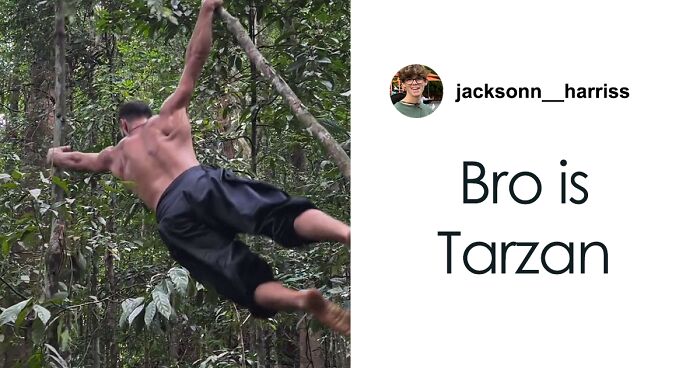
People Amazed By Tree-Swinging Man Who Documented Time With Nomadic Tribe
A French parkour artist survived 10 days with an Indonesian tribe known to eat monkeys. The nature lover, famous for his videos climbing in trees and unconventional travel destinations, shared his experience hunting in the jungle and even tasting primates.
Taking to his popular YouTube channel last month, Léo Urban uploaded a video where he gave some insights on his experience staying with a Mentawai tribe.
- a French parkour artist survived 10 days with the monkey-eating Mentawai tribe in the Indonesian jungle.
- Léo Urban shared his unique experience hunting primates and immersing in the Mentawai tribe lifestyle on YouTube.
- The Mentawai tribe uses durian fruits in rituals to appease jungle spirits before hunting with poisonous arrows.
The tribe lived in umas, traditional homes, located in Siberut in an archipelago off the coast of Sumatra, which is a large Indonesian island west of Java and south of the Malay Peninsula, known for its rugged tropical terrain, wildlife, and smoldering volcanoes.
Léo Urban, a French parkour artist, survived 10 days with the Mentawai tribe, known to eat monkeys
Image credits: leo.urban
Immersing himself in the tribe’s lifestyle, which he described as living without electricity, supermarkets, or hospitals, Léo followed a family’s fierce hunters through rough jungle terrains.
“To survive, the Mentawai have become the masters of their environment,” Léo said on camera as he was welcomed by a local family, who he said already raised chickens and pigs.
The tribe followed strict rules and rituals, guided by their Shaman, whom Léo said “knows the jungle by heart” and used plants for medicine.
Image credits: leo.urban
In fact, before going out into the jungle to hunt, tribe members were to undergo rituals, offering a special fruit picked from trees so as not to offend the jungle’s spirits.
Fetching the fruits, which were identified as the stinky durian fruit, was shown to be a challenge in itself, as the tribe’s hunters were to climb high-ground branchless trees using an impressive technique relying on cutting small openings in the wood with a machete.
Léo, despite his talents as a parkour athlete, struggled to keep up with the tribe’s pace, and he went on to show how hunters made poisonous arrows using a mixture that included hot peppers.
Before hunting in the jungle, the tribe members performed rituals, including offering durian fruits to appease the jungle spirits
Image credits: leo.urban
The YouTuber also filmed a bittersweet moment when the Mentawai people cut down a massive tree, clarifying: “They adapt perfectly to their ecosystem, taking only what they need.”
Léo later showed that the tree had been used for its integrity, including being used to carve out a new bench for his host family.
At some points, the adventure-seeker candidly shared that he was suffering from a case of diarrhea, which the family’s Shaman attempted to treat with rituals. The following day, Léo did admit to feeling better.
View this post on Instagram
Léo captured the Mentawai people’s sustainable use of a large tree, which they repurposed for various needs
@leo.urban.primal♬ son original – leo.urban
In the video, Léon further filmed the tribe’s outstanding hunting skills, emphasizing: “They hunt boars, dears, but the most prestigious animal to hunt is the monkey.”
“It’s a great pride for them to bring a monkey back to the uma,” he added.
Léon captured the moment a Mentawai hunter successfully struck a squirrel in a tree with one of his poisoned arrows. The content creator’s host family cooked the rodent and ate it at a later stage.
Image credits: Leo Urban
Image credits: Leo Urban
“Yesterday, we heard a group of monkeys in proximity, so we decided to leave at dawn for a chance to approach them,” Léon declared in his footage before noting that in Siberut, all monkey species are endemic, and only the Mentawais are allowed to hunt them.
The tree climber further explained that the tribe was hunting Langurs, a general name given to numerous species of Asian monkeys belonging to the Colobinae subfamily.
Filming the arduous work encompassing extreme vigilance, speed, and remarkable agility, Léon showed the moment a 50-year-old hunter climbed a tree before confirming that the hunt for monkeys had been successful.
Léon described the expedition to hunt langurs, documenting the Mentawai tribe’s skilled and successful monkey hunt
Image credits: Leo Urban
The tribe managed to catch three or four monkeys, which they ended up cooking for the whole family, who happily feasted on the precious catch of the day.
Léon showcased the numerous monkey skulls that were hung up around the uma, which he explained had been preserved for spiritual purposes.
“They preserve their skull so that the family can look after the creatures’ souls whose life was taken,” the Youtuber concluded.
According to his official website, Léo grew up at 1600m of altitude in the mountains of Andorra, starting parkour at the age of 12 before quickly taking over his discipline into forests.
Léo claims that he self-taught himself how to develop his “big physical capacities” through contact with nature.
“Since I was a child, I’ve always had a big fascination for animals,” the freerunner athlete says. “After 16 years of practice, this inspiration follows and guides me still.”
Léo’s parkour trademark is to perform barefoot, in nature, and preferably, surrounded by other animals; a hobby that has already seen him encounter snakes, orangutans, and cheetahs.
“They only take as much as they need,” a viewer commented on social media
Poll Question
Thanks! Check out the results:
8Kviews
Share on FacebookExplore more of these tags
Survived in the jungle? Looks to me like he was a tourist who intended to capitalize and profit of media exposure. How much is the Mentawi tribe paid for this exploitation of their customs and rituals? Do they welcome the exposure and 'curiosity tourism' that will likely result from his media circus or are they completely unaware of the risks it brings?
Survived in the jungle? Looks to me like he was a tourist who intended to capitalize and profit of media exposure. How much is the Mentawi tribe paid for this exploitation of their customs and rituals? Do they welcome the exposure and 'curiosity tourism' that will likely result from his media circus or are they completely unaware of the risks it brings?

 Dark Mode
Dark Mode 

 No fees, cancel anytime
No fees, cancel anytime 






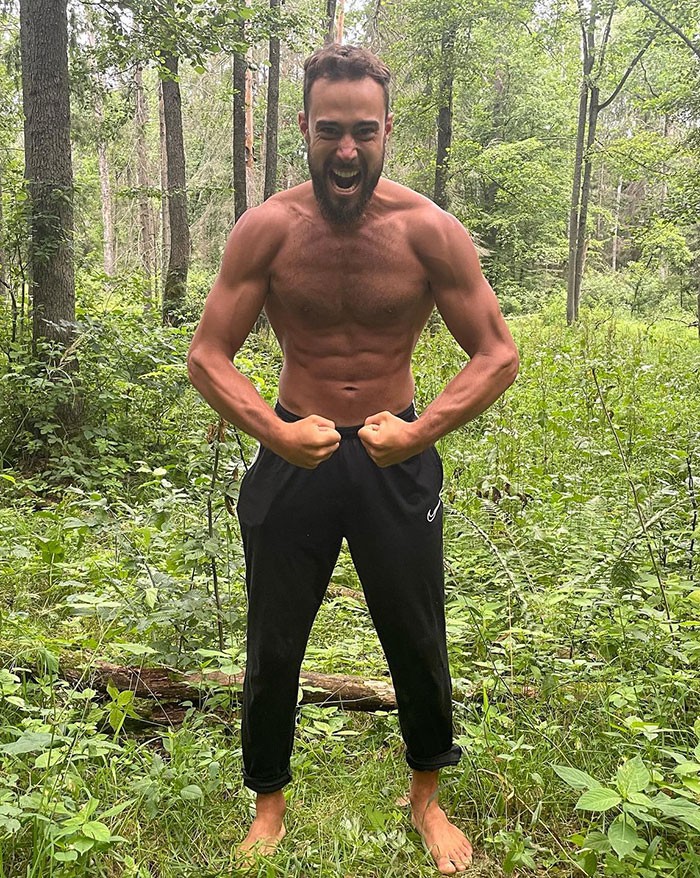
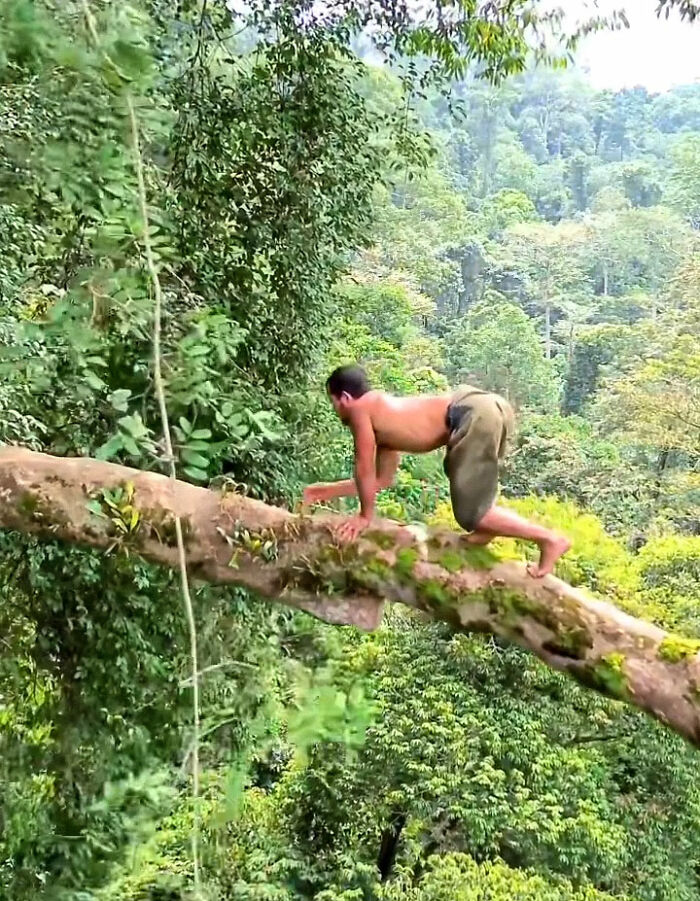
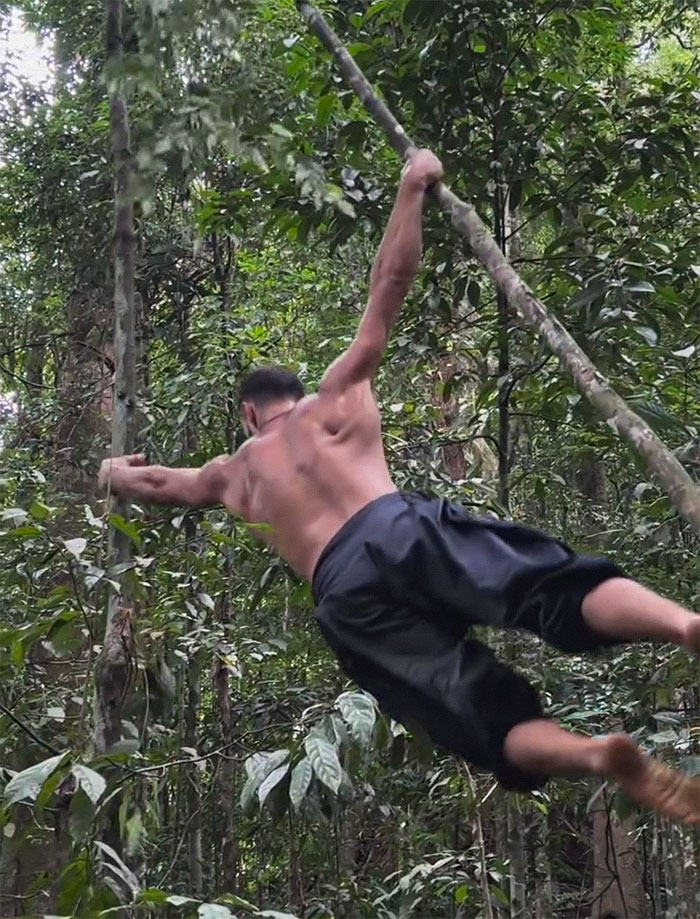
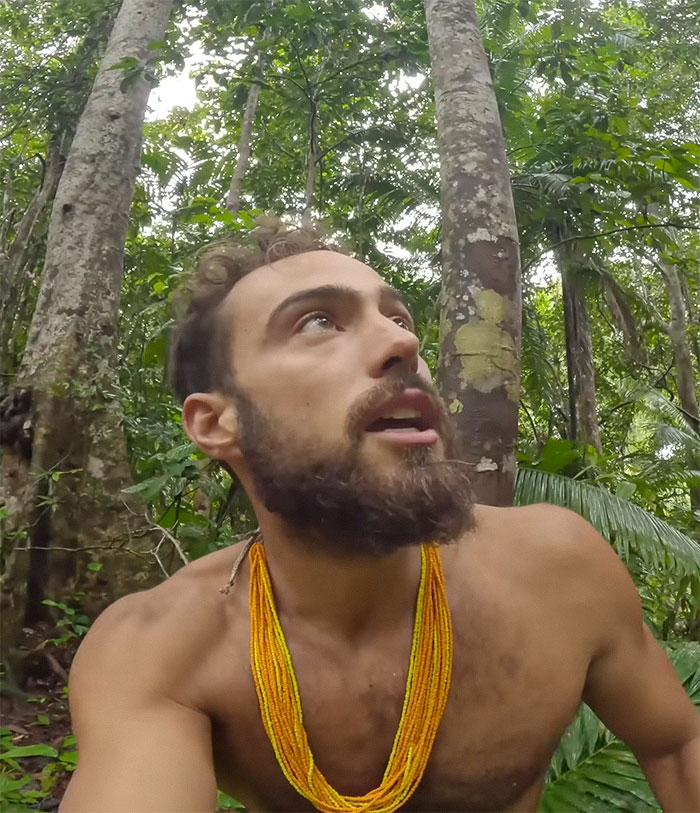
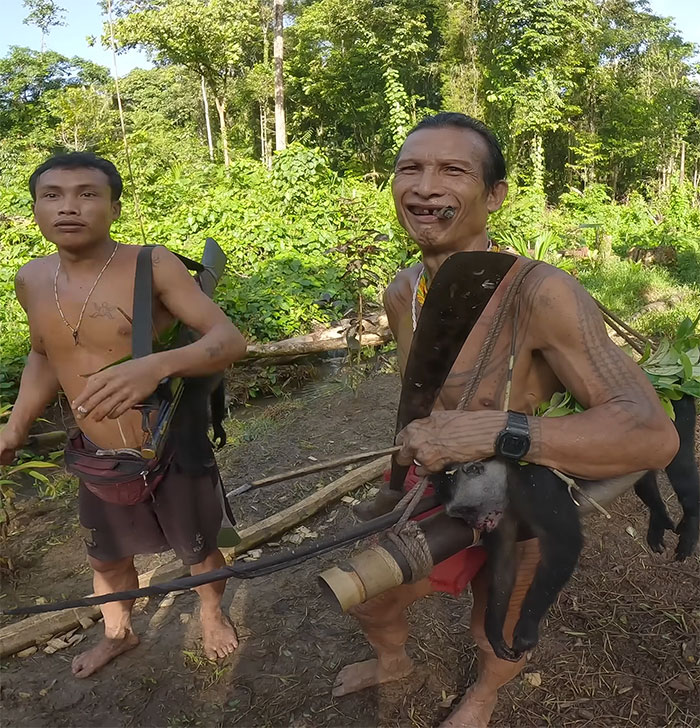
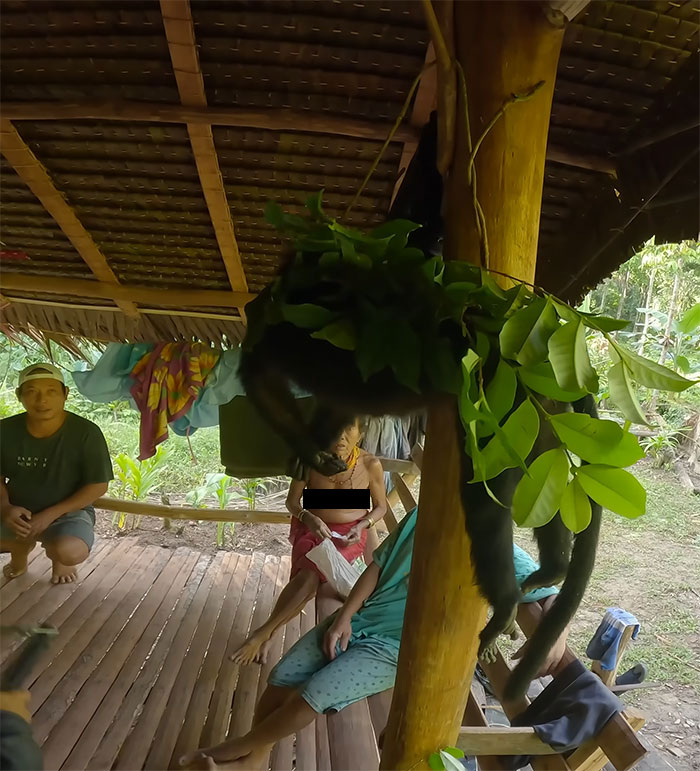










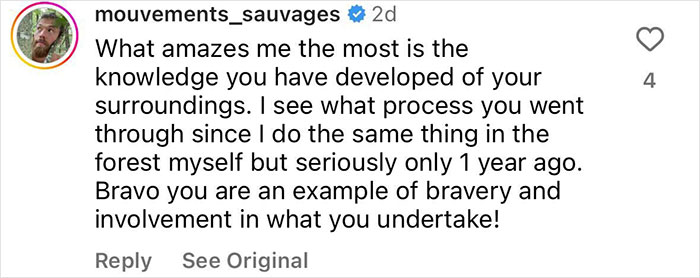











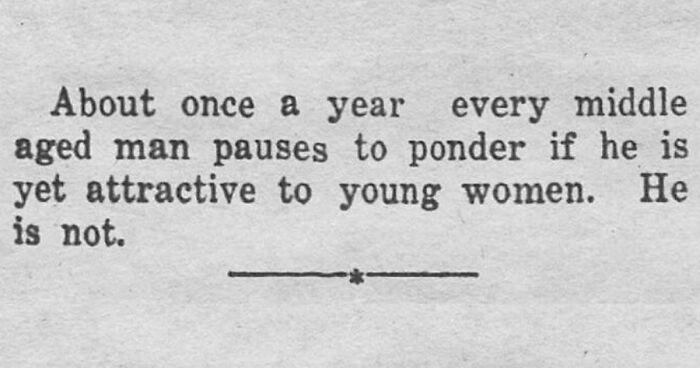
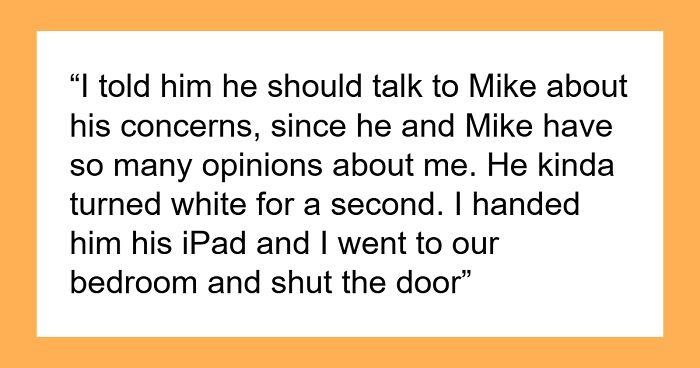
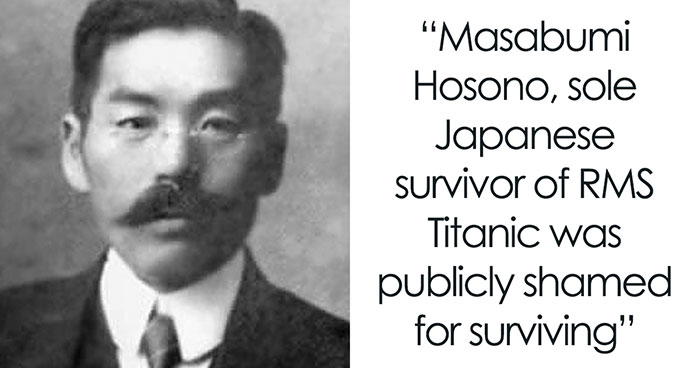






























31
3